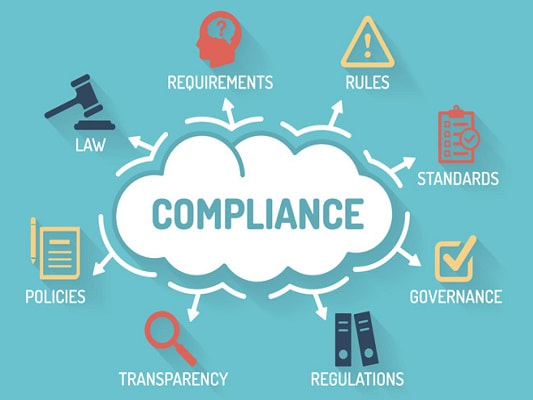 Webinar on Protecting Older Americans The National Credit Union Administration (NCUA) announced that it will be hosting a 60 minute webinar for credit unions looking to protect their older members on Thursday, May 19. The Consumer Financial Protection Bureau’s Office of Older Americans will join with the NCUA’s Division of Consumer Affairs to give credit union participants an overview of elder financial exploitation, resources to inform prevention, and tools to report abuse. Please register for this webinar here. CFPB Supervisory Report The Consumer Financial Protection Bureau (CFPB) issued their Spring 2022 Supervisory Highlights, which can be found here. This is a useful resource to monitor what other financial institutions have had issues on during their exam – in other words, make sure your credit union isn’t committing the same mistakes. Also, some of these findings may be the next trending topic among the class action attorneys – another reason to pay attention to what the CFPB is finding at institutions it examines. Some highlights from this report include findings related to auto servicing and more specifically wrongful repossessions - recent examinations found that servicers engaged in unfair acts or practices when they repossessed vehicles after consumers took action that should have prevented the repossession. CFPB had concerns regarding disclosures following loan payment deferrals. Servicers sent consumers notices about their final payment amounts that included only imprecise conditional statements, such as stating that the final payment “may be larger.” These conditional statements, without additional information about the magnitude of the final payment, likely misled consumers to believe the payment would only increase somewhat, when in fact the final payment likely would dramatically increase, by amounts multiple times larger than a normal payment. Add-on products, such as GAP - Examiners found that servicers engaged in unfair practices by failing to request refunds from the third-party administrators for “unearned” fees related to GAP products and failing to apply the applicable refunds to the accounts after repossession and cancellation of the contracts. At that point, the consumers did not have the vehicle that had been subject to the GAP product, and the product no longer offered any possible benefit to consumers. There were a number of findings related to a furnishers’ duties under the Fair Credit Reporting Act – including issues relating to investigations of indirect disputes and direct disputes from consumers. An issue that examiners found related to disputes that resulted in corrections to disputed information, the furnishers used template response letters that included confusing language, which created ambiguity about whether changes had been made in response to the dispute investigations. These letters failed to provide consumers with the results of the dispute investigations because they did not affirmatively inform the consumers that changes were made in response to their disputes. Issues with policy/procedures were also noted – as a reminder Regulation V requires furnishers establish and implement reasonable policy and procedures regarding the accuracy of and integrity of the information it furnishes. With regard to credit cards – the report cites to a number of findings, including issues with credit card rate re-evaluations. Remember – in general, unless an exception applies, after increasing a consumer’s APR, credit card issuers have to periodically assess whether it is appropriate to reduce the account’s APR(s). Issuers must first re-evaluate each such account no later than six months after the rate increase and at least every six months thereafter. In re-evaluating each account, the issuer must review (a) the factors on which the rate increase was originally based or (b) the factors the issuer currently considers when determining the APR applicable to similar, new consumer credit card accounts. Advertising issues were noted for entities that had advertised interest-free financing. Examiners found that certain entities engaged in deceptive acts or practices by advertising the interest-free financing feature of their credit card without adequately disclosing the preconditions for obtaining the financing. Regulation E issues - Examiners found that institutions engaged in unfair acts or practices by erroneously placing multiple holds on certain mobile check deposits that were deemed suspicious rather than placing the single holds that were intended. Also, examiners continued to find issues with financial institutions failing to follow Regulation E error resolution procedures. Mortgage loan originator compensation issues - it is not permissible to differentiate compensation based on credit product type, since products are simply a bundle of particular terms. Examiners found that certain lenders’ loan originator compensation agreements provided for higher loan originator compensation where Federal National Mortgage Association (Fannie Mae) conforming fixed rate loans surpassed a designated threshold percentage of the total loans closed by the loan originator. Mortgage changed circumstances – insufficient documentation issues. Examiners found that certain lenders failed to retain sufficient documentation to establish the changed circumstance’s validity. CFPB Enforcement Action The CFPB also announced a Consent Order with Bank of America, which can be found here. This enforcement action relates to the bank’s garnishment practices. Among, other items the bank is ordered to pay a civil money penalty of $10,000,000 to the CFPB. The Bank must also refund all Garnishment-Related Fees that were paid by Affected Consumers during the Relevant Period and cancel any unpaid Garnishment-Related Fees charged to Affected Consumers. The refunded amount will not be less than $592,000. The CFPB found that the bank processed hundreds of thousands of Garnishment Notices issued by courts across the country, including Out-of-State Garnishment Notices. In many cases, the bank failed to follow certain state-specific requirements and instead generally treated all Garnishment Notices alike: if the Garnishment Notice was issued from a state where Respondent had a financial center, it responded to the Garnishment Notice by indicating that the identified Consumer had a Deposit Account with potentially-garnishable assets and froze or held the Consumer’s account, regardless of whether the account was located outside of the Issuing State. As noted in the Consent Order, the Bank frequently answered Out-of-State Garnishment Notices by identifying all Deposit Accounts it held for the Consumer anywhere in the nation and held or froze the funds in those Deposit Accounts regardless of where the Deposit Accounts were located. The CFPB applied UDAAP to the Bank’s actions - The CFPA prohibits covered persons or service providers from engaging “in any unfair, deceptive, or abusive act or practice.” 12 U.S.C. §§ 5531(a), 5536(a)(1)(B). The CFPB found that the Bank’s acts and practices constituted unfair acts or practices and deceptive acts or practices in violation of Sections 1031 and 1036 of the CFPA, 12 U.S.C. §§ 5531(a) and 5536(a)(1)(B). As always, DakCU members may contact Amy Kleinschmit with any compliance related questions. Comments are closed.
|
The MemoThe Memo is DakCU's newsletter that keeps Want the Memo delivered straight to your inbox?
Archives
May 2024
Categories
All
|
|
Copyright Dakota Credit Union Association. All Rights Reserved.
2005 N Kavaney Dr - Suite 201 | Bismarck, North Dakota 58501 Phone: 800-279-6328 | info@dakcu.org | sitemap | privacy policy |





